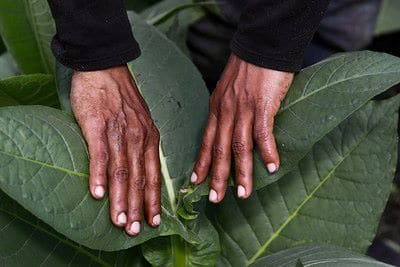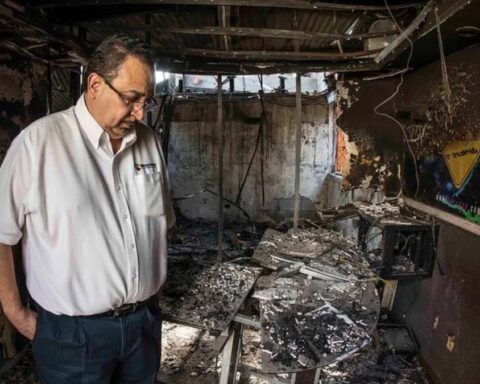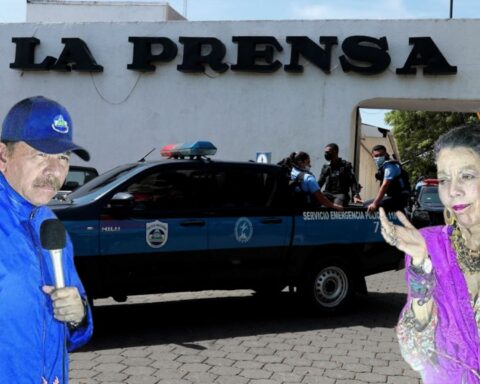The lack of labor generated by the high migration abroadrepresents a threat to the export plans of the Nicaraguan tobacco industry based mainly in the city of Estelí.
In 2021, the country exported 218 million cigars, which represented income of 38.9 million dollars, thus exceeding by 10.3 million (36.2%) the 28.6 million exported in 2020. The industry generates some 42,000 direct jobs and 100,000 indirect jobs, if it is added to the members of the entire chain, according to data provided by Claudio Sgroi, former president of the Nicaraguan Chamber of Tobacco Growers (CNT).
The Chamber has not yet established its growth projections for 2022, but Manuel Rubio, president of the CNT, said that they expect -at least- to export the same 218 million units, a goal that could be well on track, according to the statistics published the Export Procedures Center (Cetrex).
These data show that, at the end of the first quarter, income from the sale of cigars had grown 16.6%, thanks to a 7.5% rise in the price of the product. In that same period, exports grew by 28,400 kilos, although the Cetrex no longer reveals how much that means in percentage terms.
All that performance is in doubt for this year, because companies cannot recruit all the personnel they need to maintain their production goals, so they are implementing administrative decisions that increase their operating costs.
Sgroi points out that “many workers are missing for tobacco factories and processors, and that is beginning to affect us. If the export has grown, both in 2021 as in this quarter, it is because our competitiveness continues to be the best in the world”, he argued.
Although he clarifies that “I don’t know if all the lack of labor is due to migration, we do have to say that Estelí is not a city of a million inhabitants”, so that “people of working age are employed , although it is also true that many have emigrated”, he concedes.
Vacancies available
In the absence of some 2,000 people, according to Sgroi’s calculations, the industry has had to ask its workers to work extra hours and shifts, which is exhausting, but generates more income for the staff. This is especially beneficial for those who earn by production, but also for those who decide to work their Saturday off, because everything they produce that day is paid at double price, according to the Law.
“The crisis due to lack of labor has been affecting tobacco companies a lot for months, due to the high volume of migration that the country has had. Some factories have lost up to 40% of staff. Most of them because they have left the country, so now they are all overworked, which is also explained by the increase in sales,” says Kenia Ruiz, manager and owner of Marbust Cigarr Corporation.
When the covid-19 pandemic forced people to stay at home (many of them locked up to work online), “leisure developed an unprecedented rise in tobacco consumption, which translated into overwork. for the factories,” says Ruiz. “And the greater the demand, the greater the need for personnel,” he complements.
The problem for the tobacco chain is that this increase in demand coincided in time with an increase in migration, when people began to travel in increasing numbers, heading to the United States, Spain, Costa Ricaand other destinations in Central America, as a way to obtain a better job and better income.
“The combination of both factors directly affected the tobacco factories. We are applying a mechanism to train personnel. It was not done before, because it involved loss of raw material and time, and the dates of the contracts were not met, plus not everyone learns, so not everyone stays,” Ruiz explained.
The cost – and risk – of having a school
If setting up a ‘school’ is a necessity for this industry, it is also an increase in its costs, not only in terms of time and supplies, but also because those who leave postponed they do not generate any return to the operation, without mentioning that, since they are not obliged to stay with the company that trained them, these students they can go to work in any other factory any time they want.
“We have increased the payment for the work, as a strategy to keep the staff. Our people in the production area were already very well paid, but we have sought to improve the price” that is paid in each element of the process, seeking to be more competitive, without affecting the rest of the industry, explains Ruiz.
Sgroi says that, given the lack of personnel from the city of Estelí, companies are hiring people who come from other cities and northern municipalities, while others open factories in places like Ocotal and Condega, where there is a workforce that is qualified, but can be qualified. Thus the factories – which need to be close to the fields where tobacco is grown – “can maintain their production volumes, and employment reaches places where there is none.”
The cigar industry in Estelí is made up of endless factories: those that process tobacco, and those that make cigars, plus the rest of the elements that accompany it: rings, boxes, rubber to twist them, cellophane to pack them, agrochemicals , cultivation, etc., for which the industry claims its place as the fifth largest economy in the country, since it exports 99.9% of its production, generates thousands of jobs, pays taxes, contributes to the INSS, etc.
The United States is the largest buyer of Nicaraguan cigars, according to data from Cetrex, which also shows exports of raw tobacco to Honduras and the Dominican Republic, which are two other major cigar producers in the world.








